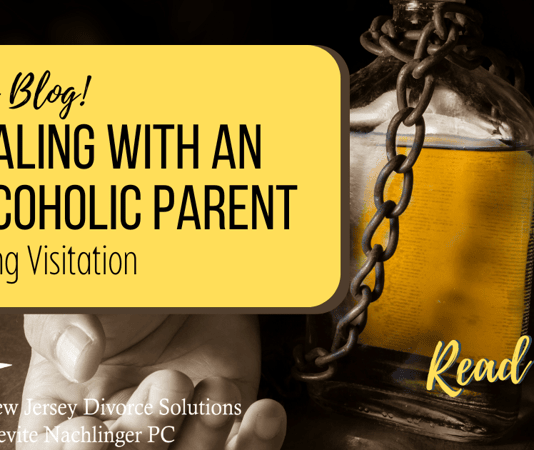Dealing with an Alcoholic Parent During Visitation

Alcoholism and substance abuse are terrible diseases that can destroy families and lives. Unfortunately, this often means that it can destroy marriages, as well. In many situations, the non-alcoholic spouse has no choice but to divorce an alcoholic in order to protect the parties’ children. Even though the alcoholic parent has a substance abuse problem, he or she will almost certainly still be granted visitation. The non-alcoholic parent needs to carefully navigate the issue of visitation in order to keep the children safe.
The non-alcoholic parent needs to be aware that except in extreme situations, an alcoholic will be granted contact with the children. The younger and more vulnerable the children, the less likely the alcoholic parent will be to received unsupervised visits if the non-alcoholic parent can prove that the alcoholic parent really does have a drinking problem. It is usually best for supervised visits to be overseen by someone other than the non-alcoholic parent. The reason for this is that there will probably be a degree of tension between the parents following the divorce, and the children should not have to be exposed to that any more than necessary. The non-alcoholic parent should also be thoughtful about the issue of drunk driving. If the alcoholic parent has a history of driving while impaired, the non-alcoholic parent may need to request special restrictions on the alcoholic parent’s ability to drive the children anywhere.
If the alcoholic parent is granted unsupervised visitation and the ability to transport the children, the non-alcoholic parent may need to have a special conversation with the children. Older children are likely to have cell phones, and should know how to contact the non-alcoholic parent in the event of the alcoholic parent drinking to excess. Note that this does not mean the child should in any way be responsible for “telling on” the other parent. The child should simply know that in an emergency, it is totally acceptable to reach out to the other parent or another trusted adult for help. If the alcoholic parent shows up for pick up or drop off intoxicated, this is truly an emergency. The non-alcoholic parent may need to call the police in order to make sure the children are not being driven by an intoxicated driver.
Substance abuse in any form can be detrimental to children. you with the divorce and custody process where one parent has a substance abuse problem. Contact us today at (732) 529-6937 to discuss how we can help keep your children safe.



